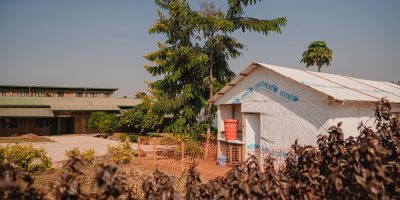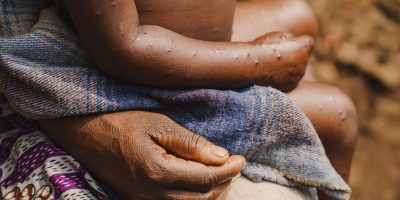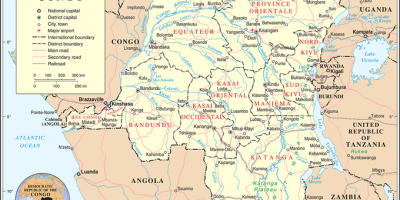Mpox is a public health emergency of international concern, and there has been an increase in mpox cases in Africa. The issue of transmission of mpox through sexual contact is an important area of operational focus for addressing cross-border spread, shaping risk communication and community engagement, and encouraging care-seeking and vaccination. However, there are several challenges that require careful consideration. On the one hand, there is concern about how to better delineate the burden of disease and clarify who is at greatest risk. On the other hand, there are important questions about framings of disease risk and how to avoid increased discrimination towards stigmatised groups, including those who face legal environments hostile to sex work and same-sex relations.
In the context of these challenges, on 13 September 2024, the Social Science in Humanitarian Action Platform (SSHAP) organised an online meeting to discuss:
- Mpox and discrimination issues in African settings;
- Operational responses to mpox that are contextually sensitive.
This report summarises the contributions from speakers (listed below) and participants.
How can mpox be framed in ways that do not exacerbate discrimination?
Update on the upsurge of mpox cases as of 13 September 2024
The World Health Organization declared mpox a public health emergency of international concern on 14 August 2024. There has been an upsurge in cases of mpox in African settings in recent years, related both to zoonotic and human-to-human transmission. Both clades 1 and 2 of the mpox virus are linked to spread through various forms of close contact with an infected person, including various forms of sexual contact.
In 2022, clade 2 caused a multi-country outbreak. In countries where mpox is not endemic, the outbreak was notably associated with gay, bisexual and other men who have sex with men (GBMSM). Currently both clades 1 and 2 are linked to mpox outbreaks on the African continent, with a significant number of cases of clade 1 in the Democratic Republic of the Congo (DRC). Notably, the highest mortality rate is in children.
A new virus strain – clade 1b – was identified in the last year in the east of DRC, in mining regions where transactional sex is an aspect of livelihoods. Clade 1b has recently spread to neighbouring countries where mpox has not occurred before, with related stigmatisation of sex workers and truck drivers. There are limited data about the burden of mpox disease in GBMSM related to clade 1b. A simultaneous outbreak of clade 2b in South Africa has been linked to GBMSM networks and is particularly severe in those with co-morbid HIV. Differences in mortality rates are emerging across diverse settings. More sporadic cases of clade 1b have also been seen in Sweden and Asia.
Socio-political dimensions
In many African countries, the legacy of colonial-era laws criminalises same-sex relations, and there have been further extensions of criminalisation in many countries in recent years. Restrictive legal frameworks impact health and healthcare. The implementation of these laws varies – they are strongly implemented in Uganda, for example. Some governments have instrumentalised LGBTQIA+ rights-based movements to position themselves as resisting imported Western values and to reinforce national identities. This legal and socio-political context has had implications on the ways in which we talk about ‘groups at risk’ in public health. Within the field of HIV programmes, we have therefore seen a focus on health rather than rights and/or identity arguments. These approaches have worked in some cases, but there is a risk of backlash for sexual minorities; for example, if people in a sexual minority are seen as spreaders of diseases. Efforts to reach people in minority groups need to consider that people may anticipate that they will be faced with discrimination, including in healthcare settings. Healthcare workers in countries with restrictive legal environments might think they must report gay and bisexual men. Improving knowledge around obligations of healthcare workers is important so that people can access care safely.
Mpox framings, narratives of blame and othering
While mpox has been around for decades, the emphasis on the disease as being sexually transmissible started to dominate in 2022 in Europe and North America. The sexualised image of mpox and targeted public health interventions can lead to stigma and discrimination. The use of othering language such as the ‘wider population’, implicitly framed in contrast with other categories, such as GBMSM or sex workers, is harmful. Furthermore, we need to pay attention to the emotional impact of stigma and promote positive narratives of treatment and recovery. It is important to take into account structural factors, which constrain people’s ability to follow public health advice, in order to move from a narrative of blame to one of empathy.
How can messaging be co-produced by those at higher risk of mpox, and how can trusted organisations and providers participate in risk communication and community engagement?
Tensions between targeting ‘at risk groups’ and exacerbating stigma
There is a tension between focusing on ‘at risk groups’ of people and exacerbating stigma of certain groups. On the one hand, there is a need to consider the particular vulnerabilities of certain groups, such as:
- Women in DRC who frequently face discrimination and are at risk of sexual violence, which is still prevalent;
- Sex workers are stigmatised;
- Less visible groups of people who also engage in transactional sex.
However, on the other hand, there is a need to be careful with the narrative of sexual transmission of mpox so that this does not:
- Deflect from other transmission routes;
- Disproportionally associate the disease with people who already face discrimination and criminalisation.
A critical question is how to ensure that the right messages go to the right people. The messages also need to be acceptable to people in need and encourage them to seek appropriate care. Sick patients can be discriminated against and stigmatised in facilities, with catastrophic implications: a few years ago in Nigeria, a mpox patient committed suicide in the hospital environment when a link was made to same-sex activity and transmission. There are tensions between ‘targeting’ and ‘scapegoating’ that need to be navigated. Also, the focus on sexual transmission – specifically for men who have sex with men, sex workers and, in some settings, truck drivers – means that other groups are neglected, including children and people living with HIV.
Co-production and localisation of messages and action
There are tensions observed across African contexts between framing messages that do not isolate specific groups and making sure the more vulnerable and those at risk are reached and receive inclusive care. The co-production of messages and interventions by communities and trusted grassroots organisations are essential to navigate these tensions. For example:
- Women take an active role in mining activities in DRC and are often organised professionally to defend their rights and improve their working conditions. Could these efforts be leveraged by mpox responses, assuming that a grassroots organisation would be able to access women who engage in transactional/commercial sex often alongside other mining activities?
- Are there initiatives, such as peer-outreach approaches in HIV programmes amongst people who engage in transactional/commercial sex or for men who have sex with men, that could provide valuable lessons for the mpox response?
In Burundi, emerging evidence from settings with high mpox caseloads suggests that sex workers who were interviewed wanted to know more about how to protect themselves from mpox, recognising that they may not have the power to refuse to have sex with clients if themselves or their client have mpox. Engaging directly with sex workers is therefore critical to understand the limits of translating knowledge about mpox into behaviours in contexts of structural injustice.
Similarly, other structural factors hinder the possibility to reduce physical contacts for many people, and these need to be accounted for. It is also critical to engage with prevention in children, especially as children return to school in DRC in September.
What can be learned from the HIV response, and what are the similarities and differences to consider with mpox?
Intersectionality
As researchers and practitioners, we can consider learning from HIV and COVID-19, whilst also acknowledging underlying differences with mpox. There is learning from HIV on the importance of contextual issues and particularly through the lens of intersectionality, which highlights how socio-economic status, gender and other characteristics cumulatively shape lived experiences of diseases. However, the discussion centred on the repercussions of framing mpox as a sexually transmitted infection. It is also critical to consider routes of transmission other than through sexual contact. A collaborative approach is indicated to avoid excluding communities, and collaborative approaches to community engagement need to be prioritised. To reach marginalised communities, the messaging should be appropriate and delivered by trusted messengers. Co-production of messages with those affected is the ideal scenario.
Challenges to ensure that people who seek care do get care
Providing care to people at higher risk of severe mpox, such as people with untreated HIV, is key. However, drawing too much attention to a particular group can have harmful effects and exacerbate stigma. Peer educators have a role to play to mediate public health action. Some peer educators are trained and could receive refresher training. An inclusive approach to mpox care can ensure that everyone affected can access services. This could require education of healthcare workers who might be poorly informed about legal environments and how these relate to the right to health and confidentiality.
What ethical issues arise related to stigmatised groups, as researchers seek to better delineate the burden of disease and routes of transmission?
Framing of the disease
The framing of disease in health messaging should not harm anyone. Research framings arising from high-income settings might have different implications in African settings. Care should be taken to ensure that narratives of blame are not reinforced. This consideration should also extend to research focusing on ‘key populations’. The uncertainty related to burdens of disease in different settings exacerbates these challenges, but consideration must be given to the possibility of ‘invisible’ burdens and to avoid over- and under-researching different affected groups. There is a concern that research in children will receive less attention, contributing to a gap in knowledge.
Ethics is about equity
It is important to consider what the implications are of messages that ‘we are all in this together’. As Caesar Atuire put it, ‘some [people] are in first class’. These inequities were seen during COVID-19 where inclusive narratives never translated into vaccine equity. Vaccine inequity is again a feature of the global mpox response. Key populations in African settings have indicated a need for mpox vaccines and expressed concern that governments might not be prioritising access.
Engaging with people with opposing views at points of care is key to tackle stigmatising healthcare delivery. It means that researchers and practitioners need to engage with people that they do not necessarily agree with and take their beliefs seriously.
Ethicists and social scientists should be involved on the ground to emphasise equitable public health responses which consider structural constraints. Research needs to engage with local communities and ensure that the priorities addressed are theirs and not just those of researchers.
Participants
Chair: Hayley MacGregor (IDS)
With: Godefroid Muzalia (Bukavu, the Democratic Republic of Congo), SSHAP East and Central Africa Hub
Speakers:
Caesar Atuire (University of Oxford and University of Ghana)
Rose Bashwira (Catholic University of Bukavu)
Rachel James (UNICEF – Collective Service)
Samuel Matsikure (Aidsfonds Netherlands)
Alex Muller (Charité Berlin and University of Cape Town)
Richard Lusimbo (Key Populations Consortium)
Adesola Ogunleye (Nigeria Centre for Disease Control and Prevention)
Jean-Claude Udehemuka (University of Rwanda – The Global Health Network Rwanda)
Annie Wilkinson (IDS)
Rapporteur: Diane Duclos (LSHTM)
Authors: This report was written by Diane Duclos and Hayley MacGregor.
Acknowledgements: Annie Wilkinson supported the development of the report. It reflects the discussion in the online meeting, and we wish to thank all those who attended for their input. This report is the responsibility of SSHAP.
Suggested citation: Duclos, D. and MacGregor, H. (2024). Meeting report: Mpox and discrimination in African settings. Social Science in Humanitarian Action (SSHAP). www.doi.org/10.19088/SSHAP.2024.047
Published by the Institute of Development Studies: October 2024.
Copyright: © Institute of Development Studies 2024. This is an Open Access paper distributed under the terms of the Creative Commons Attribution 4.0 International licence (CC BY 4.0). Except where otherwise stated, this permits unrestricted use, distribution, and reproduction in any medium, provided the original authors and source are credited and any modifications or adaptations are indicated.
Contact: If you have a direct request concerning the brief, tools, additional technical expertise or remote analysis, or should you like to be considered for the network of advisers, please contact the Social Science in Humanitarian Action Platform by emailing Annie Lowden ([email protected]) or Juliet Bedford ([email protected]).
About SSHAP: The Social Science in Humanitarian Action (SSHAP) is a partnership between the Institute of Development Studies, Anthrologica , CRCF Senegal, Gulu University, Le Groupe d’Etudes sur les Conflits et la Sécurité Humaine (GEC-SH), the London School of Hygiene and Tropical Medicine, the Sierra Leone Urban Research Centre, University of Ibadan, and the University of Juba. This work was supported by the UK Foreign, Commonwealth & Development Office (FCDO) and Wellcome 225449/Z/22/Z. The views expressed are those of the authors and do not necessarily reflect those of the funders, or the views or policies of the project partners.
Keep in touch
Email: [email protected]
Website: www.socialscienceinaction.org
Newsletter: SSHAP newsletter





